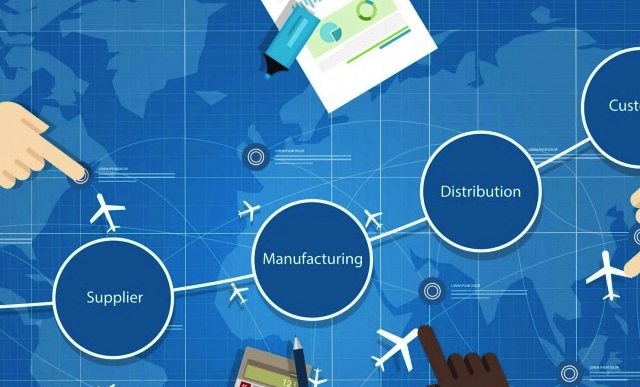Supply Chain Sustainability
Meet the Authors
Key Takeaways
⇨ Organizations are fast realizing that sustainability is not just a tick-in-the-box business goal but a strategic business objective that is not a one-time activity but a series of actions to be taken to improve long-term organizational viability and profitability.
⇨ SAP solutions are enablers of lower or zero emissions and waste, a circular economy, and zero inequality by focusing on sustainably designing, manufacturing, moving, using, and recycling products.
⇨ SAP Cloud for Sustainable Enterprises solutions are tailored to guide companies to manage their carbon footprint, reduce material waste, and become socially responsible businesses.
End-to-end supply chain sustainability steps
Sustainability has become a business imperative and a growing concern for organizations globally and across industries. As the world faces the challenges of climate change, resource depletion, and social inequalities, companies recognize the need to address these issues through sustainable practices. Organizations realize that sustainability is not just a tick-in-the-box business goal but a strategic business objective that is not a one-time activity but a series of actions to be taken to improve long-term organizational viability and profitability.
Although there has been a significant shift towards adopting sustainable practices, such as reducing greenhouse gas emissions, conserving resources, promoting ethical business practices, and engaging with stakeholders on sustainability issues, many organizations still struggle to incorporate sustainability in the overall business strategy. This is partly due to a lack of understanding of how sustainability can be integrated into different aspects of business operations. Additionally, there may be competing priorities and short-term financial pressures that can make it challenging to prioritize sustainability initiatives.
Sustainability often requires significant investments in technology, infrastructure, and people, which can be challenging for many organizations. However, despite such challenges, it is crucial for organizations to prioritize sustainability in their overall business strategy to ensure long-term success and resilience in the face of environmental and social challenges. Companies must take a holistic approach to sustainability that considers the entire value chain and engages with stakeholders to build a culture of sustainability throughout the organization.
Explore related questions
As a starting point, companies can actively seek to integrate sustainable practices into their business operations and supply chains. SAP is at the forefront of making businesses more sustainable and has integrated sustainability into its solutions. These solutions enable businesses to adopt environmentally-friendly practices throughout their entire supply chain.
A recently published whitepaper by SAP, Sustainable supply chains are in SAP’s DNA, highlights how SAP solutions are designed and developed to operate throughout every phase of a product’s life cycle, starting from inception up to the recycling process. The whitepaper explores how SAP solutions are enablers of lower or zero emissions and waste, a circular economy, and zero inequality by focusing on sustainably designing, manufacturing, moving, using, and recycling products.
SAP Cloud for Sustainable Enterprises solutions are tailored to guide companies to manage their carbon footprint, reduce material waste, and become socially responsible businesses. SAP’s Digital Supply Chain solutions enable companies to design and manufacture products in an environmentally conscious manner by assisting organizations in managing the materials required for a product’s bill of materials, connecting design, planning, manufacturing, logistics, maintenance, and service to all aspects of business and contextual data and extending the connection to the entire ecosystem of partners.
According to SAP, organizations can take certain end-to-end supply chain management sustainability steps, mentioned below:
Use data for supply chain processes. By implementing AI and machine learning in digitally connected supply chains, businesses can consolidate, analyze, and understand diverse and unorganized data from various sources. Data helps to inform supply and demand, optimizes procedures, and enhances sustainability and productivity in supply chain activities.
Connect ERP systems with supply chain tools. Modern ERPs can be integrated with supply chain and manufacturing tools to establish a unified and reliable data source for the entire business. This integration enables synchronization of supply chain and manufacturing data with other departments, such as Finance, HR, Sales, and any other department that has interconnections with supply chain operations.
Deploy end-to-end KPIs and track progress. Establishing practical and quantifiable KPIs that contribute to the overarching sustainability objectives are beneficial. These KPIs may involve integrating new assets into the IIoT network, implementing and sharing ESG guidelines for vendors and suppliers, or any other achievable and measurable actions that propel businesses towards larger sustainability goals and targets.
Create a digital transformation roadmap. By developing a concise and accessible transformation roadmap, businesses can design workflows centered around a shared objective and determine the most effective ways to utilize and integrate the distinctive skills and strengths of each team and operational area.
Access SAP’s guide to end-to-end supply chain sustainability here.





